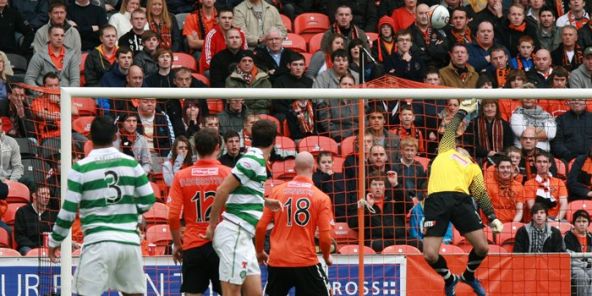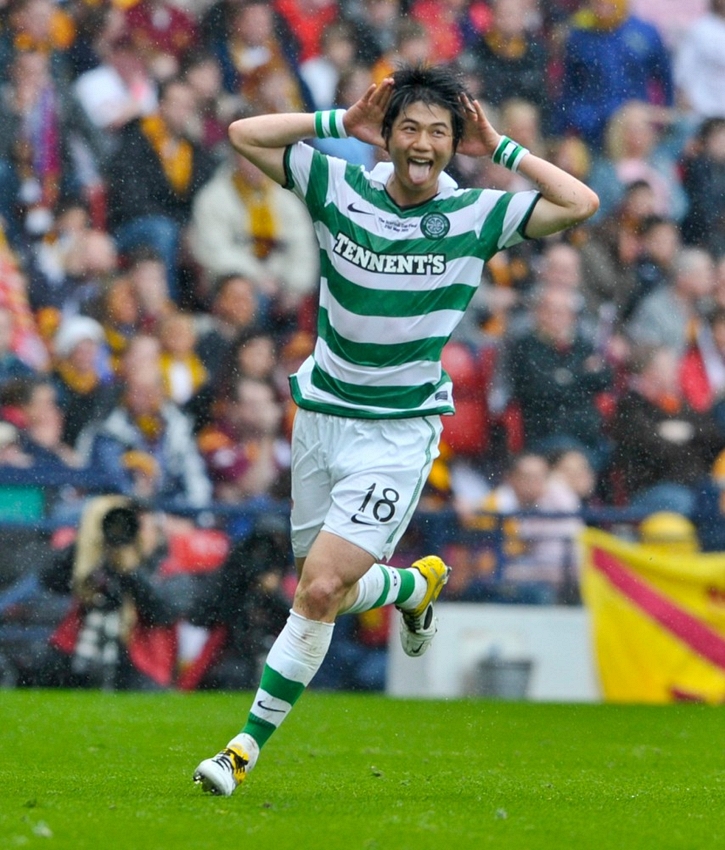Of course, it is wonderfully simple to stereotype, but when leading police officers are on the record stating that they prefer a Rangers win because with it comes less cases of violence, a serious issue exists. One can offer an explanation that this is a mere coincidence, wrapped up within a wider social issue of Glasgow’s attitude towards women. The fact that domestic violence rises by 97% (Sundays) and 57% (weekdays) is a damning indictment on the umbrella term of the ‘old firm’. But if wider violence, and domestic violence itself, reduced in the aftermath of Sundays game (a date that traditionally sees a sharp rise to the norm) compared to the cup replay (a game played on a day when domestic violence is significantly lower than Sundays) then this could point to the notion that mainstream media would hate to admit – that one side has a far greater problem than the other.
Society has changed, and the Glasgow that my Grandparents inhabited in the 1950s has become regenerated and multicultural. Mixed marriages nowadays could mean far more than the idea that you were eloping with a non-catholic. The problem, however, is that whilst the world embraces change, Rangers Football Club are stuck within an ideology that celebrates a 320 year old battle, glorifies in the deaths of innocent civilians, and considers an expression of faith to be an affront upon their very existence. This, coupled with a weakening male competence that has been created as a result of the increasing empowerment of women, then the last bastion of male dominance exists within the horrifying and abominable abuse of women. When a club like Rangers speaks of terms such as ‘tradition’ and ‘dignity’ they are highlighting their reluctance to change. Over twenty years after Celtic won the greatest prize in European football managed by a tactical genius who just so happened to be protestant, Rangers supporters were openly protesting the signing of a catholic player. How can it possibly be that in 2004 Mikel Arteta was told that he shouldn’t ‘flaunt’ his Catholicism within the hallowed walls of bigotry? Tradition, a mere buzzword for those who are stuck in an archaic existence, dreaming of a society when men can batter their wives after an old firm defeat, and who can take to the field with their eleven sons of William, marching against a fenian enemy. It is disgusting, deplorable and dangerous.
Yet despite the presence of Justice Secretary Kenny MacAskill, the cup final last Sunday was infected by the most poisonous bile and bigotry that can permeate from the largest minority that can pollute a football stadium. Graham Spiers has obviously broken the perceived wall of silence at last, and his words will be more eloquent and reach a far wider audience than this rant, but we are potentially living in a watershed moment. Unfortunately, MacAskill chose to ignore the bigoted chanting from one end of the stadium, highlighting that sectarianism is either dealt with in two ways: silence, or a lazy labelling of the issue as an ‘old firm’ problem. Hugh Keevins criticised a caller on Radio Clyde last week by stating that there is an ‘it wisnae me’ phenomenon that exists amongst Celtic supporters. Until these attitudes are challenged by the mainstream media, the problem that Rangers have will never be eradicated. It is far too convenient to create the ‘old firm’ bubble and argue that they are one and the same, whilst ignorantly commenting that arrests dropped dramatically after a game when Rangers won. One only needs to consider the three most popular songs from the terraces during Sundays game. On one side (the losing side, it should be pointed out here) you had the new favourite Just Can’t Get Enough, plus the Celtic Song and the nostalgic number about being champions in ’67. Yet the winning set of supporters offered the Billy Boys, the Famine Song, and an infected ditty about the Pope. Not one song was in favour of their own team.
Until the hierarchy of Rangers FC admit that they are a club that is suffering from the virus of bigotry and shame on a grand scale, then we will continue to hear these aggressive songs of hatred, and we will continue to hear or read very little. Tradition of a club does not mean a misguided glorification in events of hundreds of years ago, and this does not translate to adopting the same attitudes that were commonplace towards depersonalised women in the 1950s. Once upon a time, the husband was king, and hundreds of years ago, a favourite King of those rejoicing in historical masturbation was winning a battle for the throne. Times have changed, until attitudes on one side of the city change dramatically, the only crown they will continue to hold is the poisoned position of king bigots.





